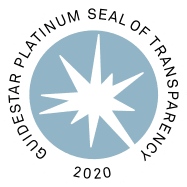For several weeks, Canada’s capital, Ottawa, has seen one of the largest public protests and acts of civil disobedience in recent history. The #FreedomConvoy protests began when hundreds of trucks formed convoys heading to Ottawa in opposition to a vaccine mandate for truckers crossing the U.S.-Canada border. Eventually, the focus of the protests became a broader opposition to COVID-19 restrictions.
The protest movement saw blockades of a half-dozen U.S.-Canada border crossings at its peak, including the key route between Windsor, Ontario, and Detroit, Michigan. The demonstrators had been given an ultimatum to leave or risk arrest and have their trucks seized.
On Monday, February 14, Prime Minister Justin Trudeau invoked the Emergencies Act for the first time in Canada’s history on account of the ongoing blockades and protests against COVID-19 restrictions and mandates.
The Emergencies Act gives the federal government extraordinary powers. These include prohibiting travel to and from a public assembly, compelling crowdfunding platforms and banks to freeze the assets of accounts funding protesters, forcing towing companies to remove vehicles blocking highways and other critical infrastructure, and establishing zones where public assembly is prohibited, such as at airports and border crossings.
This week, the police began making arrests in downtown Ottawa. Dozens of protesters have been arrested, including two leaders of the Freedom Convoy, and dozens of vehicles have been seized. Authorities have also moved to freeze bank accounts and choke off any crowdfunding and cryptocurrency transactions supporting the protesters.
Prime Minister Justin Trudeau took the rare step of declaring a national public order emergency. By law, the Emergencies Act is only allowed to be invoked in emergencies – urgent and critical situations that endanger citizens’ lives, health, or safety and cannot be resolved through any existing legislation. What’s happening in Canada right now does not meet this criteria but instead represents government overreach and an infringement on individual liberty.
At Students For Liberty, we believe that such conduct represents state-sanctioned violence and is unacceptable in a civil and free society. We consider economic and political freedoms to be the foundations of such a society. The government bears primary responsibility for creating an environment that protects individuals’ rights and ensures that all citizens can exercise their rights to freedom of speech and assembly without threats of intimidation or harassment.
Students For Liberty stands with the Canadian people in their aspirations for a freer future. We support their call for the state to respect their rights to move freely, express themselves, and hold peaceful demonstrations. Anything that infringes upon those rights is an attack on individual liberty.

















